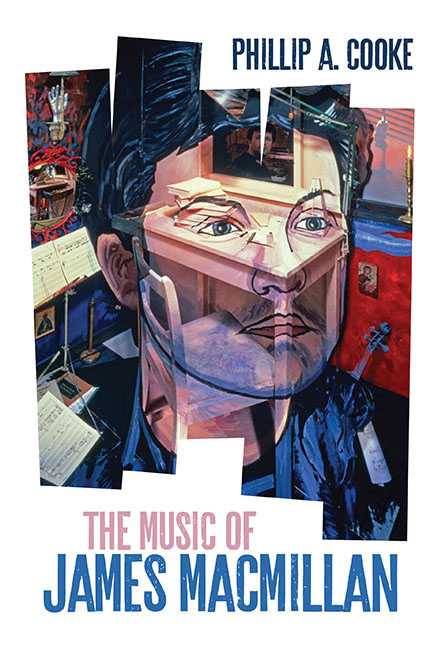Book contents
- Frontmatter
- Contents
- List of Plates
- List of Tables
- List of Music Examples
- Foreword
- Prologue
- Acknowledgements
- Permissions
- 1 The Keening – Cumnock, Edinburgh and Durham
- 2 The Tryst – Glasgow and the Road to Isobel Gowdie
- 3 Scots Songs – The Confession of Isobel Gowdie, Tuireadh and Veni, Veni, Emmanuel
- 4 A Different World – Visitatio Sepulchri, Seven Last Words from the Cross and Inés de Castro
- 5 Changed – Triduum and Quickening
- 6 Raising Sparks – ‘Scotland's Shame’, Politics and A Scotch Bestiary
- 7 A New Song – Mass and MacMillan 's Choral Renaissance
- 8 After Virtue – Symphony No. 3, The Sacrifice and the St John Passion
- 9 Serenity – Violin Concerto, Clemency and the St Luke Passion
- 10 Tu es Petrus – Bellahouston Park and the Return to Cumnock
- List of Works and Recordings
- Bibliography
- Index of Works by James MacMillan
- General Index
6 - Raising Sparks – ‘Scotland's Shame’, Politics and A Scotch Bestiary
Published online by Cambridge University Press: 31 August 2019
- Frontmatter
- Contents
- List of Plates
- List of Tables
- List of Music Examples
- Foreword
- Prologue
- Acknowledgements
- Permissions
- 1 The Keening – Cumnock, Edinburgh and Durham
- 2 The Tryst – Glasgow and the Road to Isobel Gowdie
- 3 Scots Songs – The Confession of Isobel Gowdie, Tuireadh and Veni, Veni, Emmanuel
- 4 A Different World – Visitatio Sepulchri, Seven Last Words from the Cross and Inés de Castro
- 5 Changed – Triduum and Quickening
- 6 Raising Sparks – ‘Scotland's Shame’, Politics and A Scotch Bestiary
- 7 A New Song – Mass and MacMillan 's Choral Renaissance
- 8 After Virtue – Symphony No. 3, The Sacrifice and the St John Passion
- 9 Serenity – Violin Concerto, Clemency and the St Luke Passion
- 10 Tu es Petrus – Bellahouston Park and the Return to Cumnock
- List of Works and Recordings
- Bibliography
- Index of Works by James MacMillan
- General Index
Summary
‘My three kids were so terrified by the sequence of sullen visitors, they were packed off with the childminder’ wrote James MacMillan in 2006, a stark reminiscence by the composer of the eye-of-the-storm that had greeted the MacMillan family in August 1999 after the speech he had given at the Edinburgh Festival days earlier. This speech, entitled ‘Scotland's Shame’, is one of the most decisive events in MacMillan's career and one that defines him as much, if not more, than The Confession of Isobel Gowdie or Seven Last Words from the Cross: it was a watershed moment in the composer's career and one that has had a direct influence on the music he has written and the political opinions he holds in its aftermath. But what was quite so incendiary about the speech and why have its repercussions continued to be felt in MacMillan's work to this day?
In the loosest terms, ‘Scotland's Shame’ highlights the sectarianism in modern-day Scotland and the discrimination and prejudice against Catholics in many walks of everyday life. It is a passionate but reasoned polemic suggesting that the age-old Protestant–Catholic tensions that existed in Scotland since the Reformation were still very much present at the turn of the new millennium. The speech deals head on with anti-Catholicism and suggests that ‘Scotland is guilty of “sleep-walking” bigotry’ in a more pluralist and secular age. His speech covers what would become familiar political ground for MacMillan, including faith schools, nationalism (particularly the Scottish National Party, which later became a bête noire for the composer) and the growing secularisation of society. Along with a startling analogy between the Reformation and the Cultural Revolution in China, MacMillan suggests the issue is ‘as endemic as it is second nature’ and places the problem across all areas of society including the sporting arena and the media. It is perhaps the reference to the latter that caused the greatest consternation and explains why the reaction to ‘Scotland's Shame’ rumbled on for weeks in the Scottish broadsheet newspapers.
Certainly, the speech opened up a Pandora's box that many Scots either presumed or hoped had been shut by previous generations, and it was not helped by having the issue discussed in such a public (and international) forum, meaning the subject could not easily be sidestepped or dismissed.
- Type
- Chapter
- Information
- The Music of James MacMillan , pp. 121 - 134Publisher: Boydell & BrewerPrint publication year: 2019



